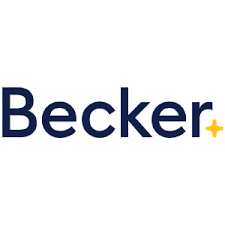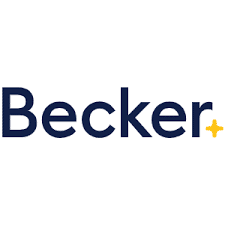How often does a person change careers during a lifetime?
One way to compute the number of career changes is to consider average tenure at a particular job. The Bureau of Labor Statistics (BLS) reported that “The median number of years that wage and salary workers had been with their current employer was 4.2 years in January 2018…”
Therefore, over a 40-year career, the BLS statistic implies that you may change jobs about 10 or so times. Unfortunately, BLS has not attempted to measure how often people change careers– only job changes. Estimates of the average number of career changes in a lifetime vary from five to seven, but there’s no conclusive data.
However, one thing is for sure: if you’re considering a career change, you’re not alone. And accounting is one of the best choices you can make in this regard. So if you’re interested, use these tips to help you change your career to become a Certified Public Accountant (CPA).

Assessment
Finding out who you are, and what kind of work you prefer, can help you decide whether or not to become a CPA. Fortunately, you have a variety of tools to make this decision:
Nearly every high school and college provides career assessment tools to students. Furthermore, this data is used to help students make a decision about choosing a college or deciding on a major.
Keep in mind, however, that your interests can change over time. Therefore, you should take an assessment before considering a career change, even if you’ve taken evaluations in the past year or two. Don’t leave it to chance: find out about your personal preferences early to save some time!
The Myers-Briggs Type Indicator, for example, is a personality test that you can access online for free.
Here are five personality aspects and how they might relate to a career as a CPA:
- Introvert vs. Extrovert: Simply put, introverts get exhausted by social interaction, while extroverts thrive on social interaction. As a CPA, you may be able to work alone much of the time, but you will need to interact with co-workers and clients. Auditors in particular spend a great deal of time with clients; hence, they need a degree of the extrovert personality to succeed.
- Observant vs. Intuitive: To work as a CPA, you need to be observant, meaning that you’re practical, pragmatic, and down-to-earth. If your assessment indicates that you’re a strong intuitive creative, you may not have the makeup to succeed as a CPA.
- Thinking vs. Feeling: A CPA needs to be a thinker, or a person who focuses on objectivity and rationality. Feeling is a mindset better suited for art and other creative passions.
- Judging vs. Prospecting: Judging people are decisive, organized, and prefer clarity: these traits fit the CPA career. Alternatively, prospecting people are relaxed nonconformists, and this trait is not a great fit for the accounting profession.
- Assertive vs. Turbulent: Assertive people manage stress well, and a CPA must be able to manage stress and work under pressure at times. Turbulent people, on the other hand, are more sensitive to stress and therefore less suited to this career path.
Many successful CPAs have a combination of traits, and having some of the feeling or turbulent traits, for example, will not prevent you from a successful CPA career. Still, you should consider your assessment results before you pursue any career change.
In general, an accountant needs to be well organized and excel at performing detailed work using sets of guidelines. CPAs also need to be able to think through issues in a particular order.

Specific Skills
To go into more detail on the skills needed to be a CPA, consider these skills and the related examples:
Performing Tasks In Order
Accounting is based on the accounting cycle, which requires an accountant to complete steps in a particular order. One step supports the next; a CPA must be able to stay on track and follow the proper order of steps.
Say for example that you need to post ten journal entries and then generate a trial balance. After reviewing the trial balance, you need to post adjusting entries and use the adjusted trial balance to create the financial statements.
When you walk into the office on Monday morning, you need to know which step you must complete next. If you don’t have all of the journal entries posted, for example, your trial balance is incomplete.
Is this skill something that comes easily to you? If so, you may be suited to become a CPA!
The Big Picture
While a CPA career requires someone who can dig into detail, you also need the ability to consider the big picture. Specifically, you must be able to understand relationships between balances in the financial statements and to identify trends.
Here’s an example:
During your review of the month-end financial statements, you notice that sales increased 10% while accounts receivable increased 25%. A CPA should be able to conclude that, on average, customers are paying more slowly, and that the rapidly increasing receivable balance may eventually cause a cash shortage.
Business owners want CPAs who can provide big picture advice. Does that apply to you?
Professional Skepticism
Every company is at risk for fraud. Therefore, you should always view business operations with a degree of skepticism. This skill applies to both auditors and CPAs working as accounting managers and CFOs. Here are two examples:
- A manufacturing company CFO insists that, before a vendor is paid, he must review the purchase order (PO) and a shipping receipt initialed by the operations manager. The PO verifies that management approved the purchase and the shipping receipt documents that the goods were actually received.
- An auditor insists that a physical count of a client’s inventory is performed within two days of the balance sheet date used in the audit. This audit test work is the most reliable method to confirm the dollar value of inventory.
The CFO’s policy reduces the risk that a vendor is paid for goods that were not approved or not received. In a similar way, the auditor’s inventory count allows the CPA to view the physical inventory, and compare it to the inventory listing in the accounting records.
CPAs need a level of skepticism to protect against possible fraud.

Where Do I Start?
If you decide that becoming a CPA is that right path for you, check with your State Board of Accountancy. Your state’s Board determines the courses and hours that you need to take to be eligible for the CPA exam and the work experience required before you become a Certified Public Accountant. In most states, you can gain work experience by working in public accounting or through time spent working as an accountant in industry.
As you make the move into the CPA field, you need to consider the company size that you prefer. Whether you go into public accounting or you work for a corporation, your work experience will differ greatly depending on the size of the business.
As a smaller company, you’ll be exposed to many different areas of accounting. An accounting staff member at a small firm may post entries for cash, receivables, debt, and for the income statement. You may post adjustments to the trial balance, and work on the company tax return.
Alternatively, CPAs at bigger firms may end up specializing in one area, such as managing cash and investments in the treasury department. You’ll have less variety at a large firm, but you’ll develop an expertise in a specific niche.
The same is true in public accounting. Auditors at large CPA firms may specialize in a certain industry such as financial services.
There are benefits to both small and large firms, so ask your contacts that work in accounting which environment they prefer and why.

A Great Career
Invest the time to meet with some CPAs that you know and ask them about their typical workday. These conversations will help you visualize a career in accounting.
If the CPA profession fits your personality type and skill set, it can be a great career choice!

Year End Sale – $1,521 Off Becker CPA Pro+

Year End Sale – $1,520 Off Becker CPA Pro

Save $1,250 on Gleim CPA Traditional

Enjoy $1,050 Off Gleim CPA Premium Pro Course

Year End Sale – $1,000 Off Becker CPA Concierge

Take $900 Off Gleim CPA Premium

Save $629 Surgent CPA Ultimate Pass

Exclusive Offer – 30% Off Lambers CPA Course Package

Becker Deal: Save on CPA Single Part Courses

Enjoy a 14-day Free Trial on Becker CPA Courses

Becker CPA Advantage Package Now $2,499 – Promo

Becker CPA: Interest-Free Payment Plan – Deal













